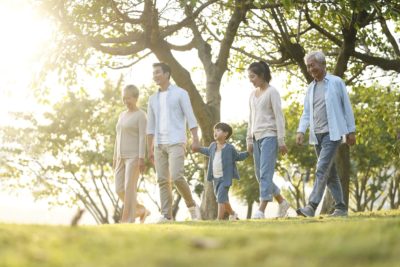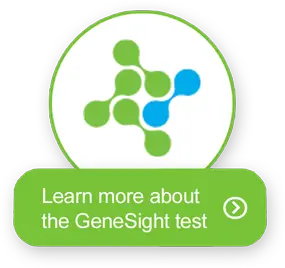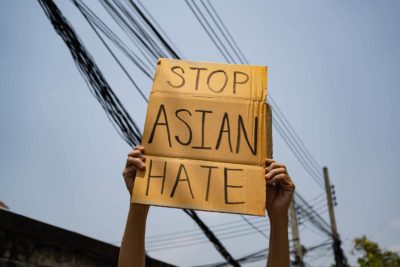It can be hard to speak up when you’re struggling with mental health issues. However, it’s even harder to do so without support.
 That’s why a chorus of voices are recognizing National Minority Mental Health Awareness Month this July. Also known as BIPOC Mental Health Month, it’s a time to hear from Americans who historically haven’t had their stories widely shared – and to bring to light specific challenges they may face when it comes to addressing mental health concerns.
That’s why a chorus of voices are recognizing National Minority Mental Health Awareness Month this July. Also known as BIPOC Mental Health Month, it’s a time to hear from Americans who historically haven’t had their stories widely shared – and to bring to light specific challenges they may face when it comes to addressing mental health concerns.
As an example of a specific challenge, members of the Asian American and Pacific Islander (AAPI) communities may experience a cultural bias towards mental health, which may deter them from seeking professional help.
Understanding mental health in AAPI communities
In 2018, Asian Americans were 60 percent less likely to have received mental health treatment as compared to non-Hispanic white people, according to data from the U.S. Department of Health and Human Services.
“I think there is such a big stigma in so many Asian communities that seeking help for mental therapy or mental illness is considered a weakness, and it’s absolutely not a weakness,” says Kenji Jones, a third-generation Japanese American and co-founder of a nonprofit supporting AAPI communities, to Good Morning America.
According to an article published on the American Psychological Association website, potential mental health challenges for AAPI community members could include:
- “Parental pressure to succeed in academics
- Discussing mental health concerns is considered taboo in many Asian cultures and as a result Asian Americans tend to dismiss, deny or neglect their symptoms
- Pressure to live up to the ‘model minority’ stereotype (a view that inaccurately portrays Asian Americans as successfully integrating into mainstream culture and having overcome the challenges of racial bias)
- Family obligations based on strong traditional and cultural values
- Discrimination due to racial or cultural background
- Difficulty in balancing two different cultures and developing a bicultural sense of self”
Jinnie Lee, writer and member of the AAPI community, describes her experience with the professional mental health care stigma in Refinery 29:
 “But as a U.S.-raised Korean-American born to immigrant parents, I didn’t need research to tell me that AAPIs don’t subscribe to psychotherapy. For many of us, talk therapy isn’t part of our vocabulary – we weren’t brought up to discuss our own emotions. Instead, we’ve been conditioned to think about how our actions could affect our greater community; that others’ feelings are more important than our own, and that there’s shame in airing dirty laundry. We’re taught to buck up and overcome these issues in isolation, like our parents and theirs had done before them. In turn, seeking professional help is viewed as a weakness in character, or a flaw in your upbringing. In the West, tending to our mental health is seen as courageous. In the East, it’s seen as indulgent and selfish.”
“But as a U.S.-raised Korean-American born to immigrant parents, I didn’t need research to tell me that AAPIs don’t subscribe to psychotherapy. For many of us, talk therapy isn’t part of our vocabulary – we weren’t brought up to discuss our own emotions. Instead, we’ve been conditioned to think about how our actions could affect our greater community; that others’ feelings are more important than our own, and that there’s shame in airing dirty laundry. We’re taught to buck up and overcome these issues in isolation, like our parents and theirs had done before them. In turn, seeking professional help is viewed as a weakness in character, or a flaw in your upbringing. In the West, tending to our mental health is seen as courageous. In the East, it’s seen as indulgent and selfish.”
“Lack of awareness of the resources and services that are available, as well as the stigma surrounding mental health issues, are the biggest deterrents in seeking professional help,” according to the Mental Health America website.
Professional treatment options may include talk therapy, medication, alternative treatments or a combination of these approaches.
AAPI mental health struggles since 2020 and COVID
Another unique mental health challenge for the AAPI community is the COVID-19 pandemic, but for reasons more than just the loss of loved ones, the isolation of quarantining, and disagreements about masking and/or safety measures that most everyone faced.
The arrival of COVID saw a rise in anti-Asian bias, according to a study shared by NBC News. In 2020, the Center for the Study of Hate and Extremism reported nearly a 150 percent surge in anti-Asian hate crimes, including violent attacks.
“The impact of anti-AAPI hate is staggering. I am one of almost one-third of Asian adults who live in fear that someone might threaten or attack them,” writes Aileen Fullchange, PhD, in Ms. Magazine. “AAPI women are especially prone to experiencing physical and mental health challenges when faced with discrimination, like the intrusive memories, nightmares and hyper-vigilance I experience. AAPI women lost their jobs during the pandemic at a rate that far exceeded that of other racial groups. Even children are affected, with 16 percent of anti-AAPI hate incidents being reported by AAPI youths ages 12-20.”
Helping community members manage these mental health issues may require an approach that shows cultural understanding.
“Culturally competent providers understand each person’s values, experiences and personal beliefs, and strive to provide services that support their goals and are aligned with their cultural values. When a person is struggling with their mental health, it is essential to receive quality and culturally competent care in order to improve outcomes,” according to the National Alliance on Mental Illness.
“Given the vast diversity of AAPI groups, culturally competent providers for these communities often show a strong desire to establish a trust-based therapeutic relationship with the individuals they are treating through effective listening and willingness to learn.”
Importance of month-long awareness and action
This National BIPOC Mental Health Awareness Month, AAPI community members are working to destigmatize mental illness and launch a mental health movement that considers important cultural factors in addressing their needs.
“Although the number of AAPIs receiving mental health treatments is relatively small, I’m grateful to know that thoughtfully administered AAPI-aligned options are out there, and these services are likely to grow as more Asians opt for therapy,” writes Jinnie Lee in Refinery 29. “But in the meantime, something that I and fellow AAPIs can do in the immediate is talk more openly about mental health issues. We can all agree that this topic ought to be less taboo and more normalized. Oftentimes, it’s the silence of what AAPIs don’t talk about that can be the most deafening. But, with these innovative approaches to mental health becoming increasingly prevalent within the Asian-American community, it’s a positive sign that a larger cultural shift is on the horizon.”
For more information on this important topic, please visit:
https://genesight.com/blog/patient/strength-over-silence-improving-minority-mental-health/
https://genesight.com/blog/healthcare-provider/how-minority-cultures-talk-about-depression/
https://genesight.com/blog/patient/minority-mental-health-stigma/
Our articles are for informational purposes only and are reviewed by our Medical Information team, which includes PharmDs, MDs, and PhDs. Do not make any changes to your current medications or dosing without consulting your healthcare provider.
The GeneSight test must be ordered by and used only in consultation with a healthcare provider who can prescribe medications. As with all genetic tests, the GeneSight test results have limitations and do not constitute medical advice. The test results are designed to be just one part of a larger, complete patient assessment, which would include proper diagnosis and consideration of your medical history, other medications you may be taking, your family history, and other factors.
If you are a healthcare provider and interested in learning more about the GeneSight test, please contact us at 855.891.9415. If you are a patient, please talk with your doctor to see if the GeneSight test may be helpful.







